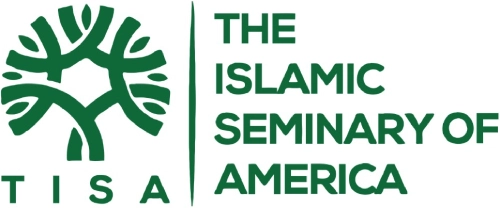This month, I had the profound honor of participating in the Abrahamic Dialogue Course, a transformative initiative bringing Muslims, Jews, and Christians together to foster understanding, build bridges, and celebrate the shared values that unite us. Organized by the Washington Theological Consortium and hosted by the United Lutheran Seminary, the program masterfully combined scholarly engagement with immersive, firsthand experiences that left an indelible mark on my heart and mind.
The dialogue sessions were both enriching and thought-provoking, as we tackled some heavy and often complex topics. Under the expert guidance of Dr. Ori Soltes, Dr. Gulsum Kuchuksari, and Dr. Sandra Collins, we explored themes such as Revelation and Interpretation, Art, Symbol, and Ritual, Mysticism, and Spirituality, and even delved into nuanced discussions around Religion, Nationalism, and Race—all through the lens of the Abrahamic traditions. These discussions were not always easy. Stepping into each other’s “bubbles” and engaging in respectful yet challenging dialogue was an essential part of the experience. This process brought the topics home in a deeply personal way, helping us connect with one another on a human level, even when we didn’t fully agree.
Outside the classroom, our journey into sacred spaces offered profound insights into the lived realities of each tradition. We began with the Islamic tradition at the historic Masjidullah, Malcolm X’s masjid. Here, we were embraced by a resilient and inspiring community. We had the privilege of sitting with Brother Kenneth Salaam, known as “Freedom Smitty,” who marched with Dr. Martin Luther King Jr., and Sister Fatima Ali, a 95-year-old trailblazer who worked closely with Malcolm X. Revered as the backbone of the masjid, Sister Fatima’s unwavering dedication has been pivotal to its legacy. A former Imam of the masjid reminded us that Malcolm X himself was a product of this remarkable community—a testament to its transformative role in the lives of many.
The Jewish tradition took us to the Germantown Jewish Centre, where we attended a moving Shabbat service led by Maria Pulzetti, a student rabbi and Beit Midrash Director. The atmosphere was deeply spiritual and welcoming, and our follow-up conversations with Maria enriched our understanding of Jewish worship, community, and identity. The openness of the congregation to share their experiences and traditions fostered a sense of connection that transcended religious boundaries.
The Christian tradition brought us to two distinct churches. At Salt and Light Church, we experienced the soulful vibrancy of a Black African-American Baptist service. The powerful expressions of faith and community solidarity were uplifting and deeply moving. We then visited the multicultural Church of St. William, where we joined Rev. Francesco D’Amico, originally from Italy, and his congregation. This diverse community beautifully reflected the harmony of unity in diversity, and their liturgical traditions offered profound insights into their faith practices.
This course was a deeply humbling reminder that interfaith dialogue is far more than an academic exercise—it is a journey of connection and transformation. By stepping into one another’s sacred spaces, sharing our stories, and listening with open hearts, we cultivated a shared pursuit of compassion, justice, and understanding. I am deeply grateful to the organizers, teachers, and participants for making this experience unforgettable. It reaffirmed my belief in the power of dialogue to not only bridge divides but also deepen our shared humanity.
Sincerely,
Mohamed Hassan

